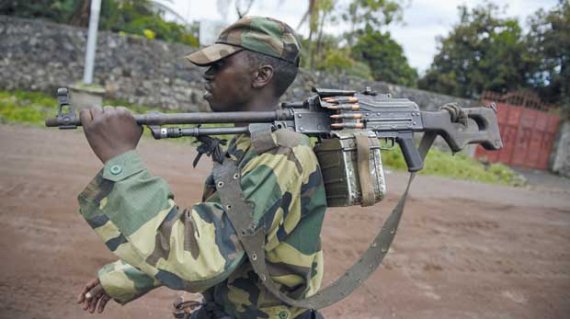Now that the town of Goma has been taken by the rebel group M23, the war in the eastern Congo has flared up again. This has consequences for Wageningen research in the region. Professor Thea Hilhorst of Disaster Studies made a brief visit to Bukavu, 100 kilometres south of Goma, last week. She noticed that the army and police there were quite nervous. There was also more than usual criminal activity, such as attacks on a petrol station and a bank. ‘People felt less safe.’ One day after she left the Congo all foreigners were evacuated from Bukavu. Hilhorst has seven PhD students in the Congo, five of them Congolese. They are doing research on everyday life for people in conflict areas, and the impact of attempts by aid organizations to improve life for them. In recent months, a survey of families in three Congolese villages already had to be restricted because the situation in two of the three villages was too unsafe. M23 was not the only reason for that. According to Hilhorst, there are several roaming rebel groups in action, which can cause the security situation to change suddenly, as she knows from experience. The sudden rise of the M23 group illustrates the instability of the region. ‘In April it was just a small group of a couple of hundred men, and now they are marching into Goma.’ The conflicts have a direct impact on the progress of the Wageningen research. ‘Work safety is the first priority,’ says Hilhorst. ‘We will go back to the Congo once it is safe for aid organizations. Meanwhile we are managing to carry on with our research through Skype and emails.’ Hilhorst feels it is important to continue doing development research, even in times of conflict. ‘Farmers are often more bothered by plant diseases than by rebels. You must go on developing a conflict region, otherwise things just go downhill there.’
Research in Congo on back burner
Security situation hampers development research. 'Important to continue research.'

